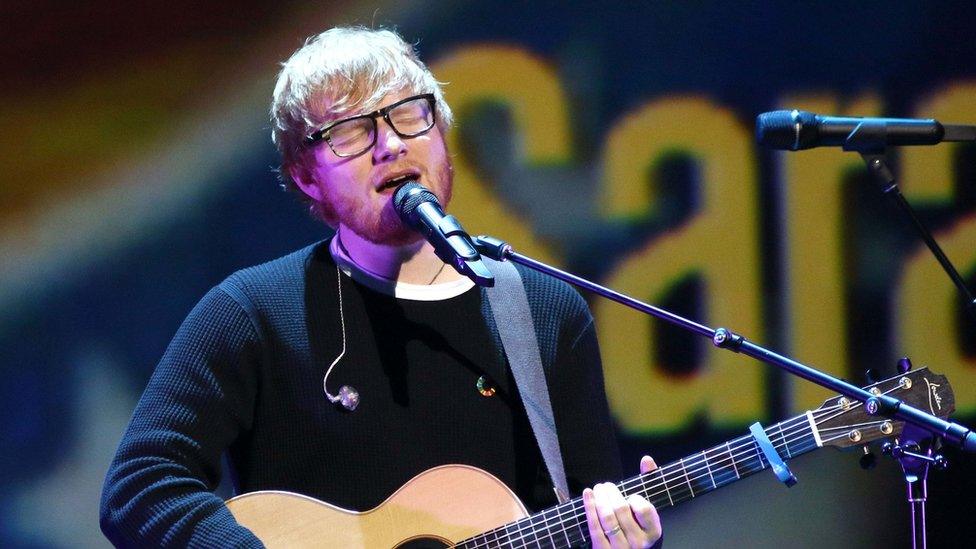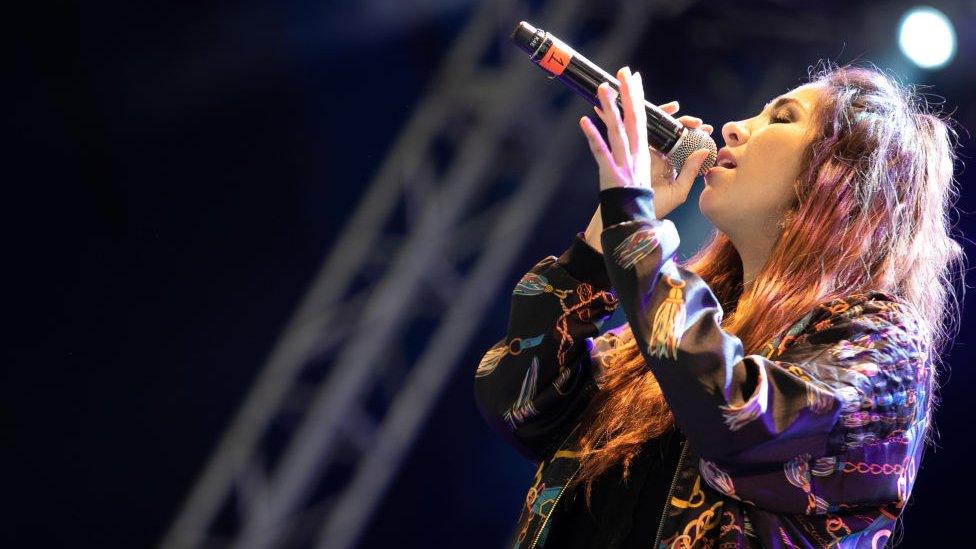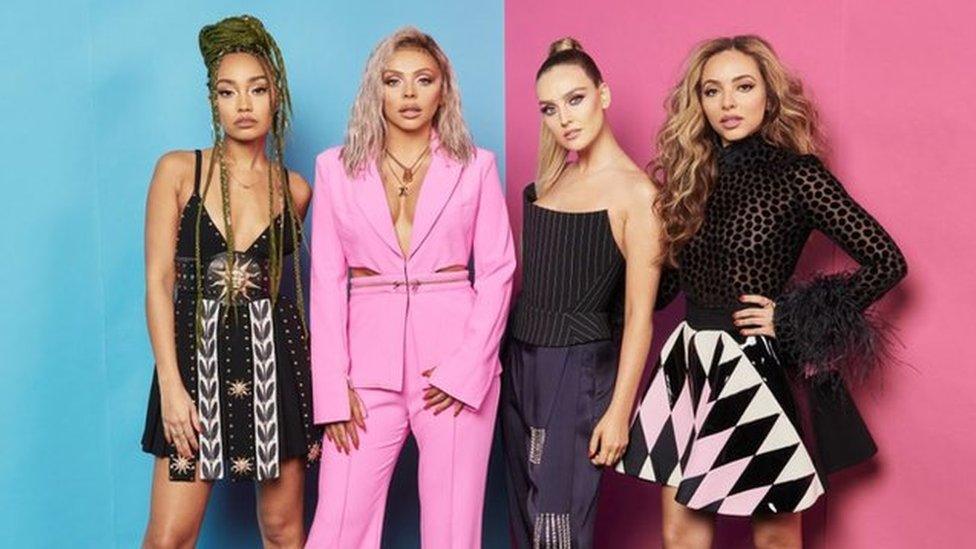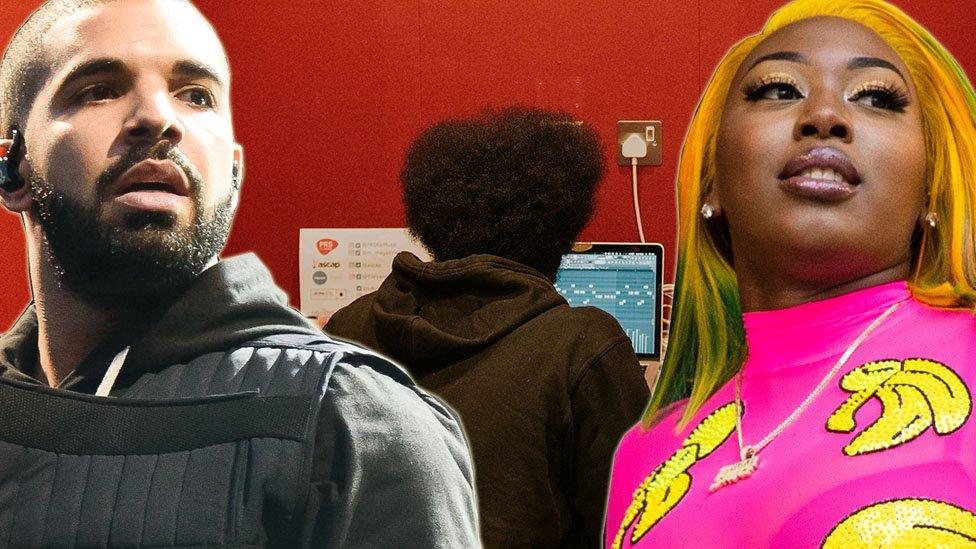Music royalties reach record high but songwriters 'on minimum wage'
- Published

Steve Mac - who co-wrote Ed Sheeran's Shape of You - and Ed himself were some of the top earners
The money that artists receive when their tracks get played has just hit a record high.
In 2018 £746 million was collected - a rise of 4% on 2017.
PRS for music, which gathers the royalties for artists, counted songs used on Facebook and Instagram Stories for the first time.
But according to singer-songwriter Ruth-Anne Cunningham, "a lot of songwriters are making less than minimum wage".
Ruth-Anne, who's worked with Avicii, JoJo and John Legend, says "it's great everything is starting to get monetised" but adds, "unless you have a top 40 radio hit you don't make a substantial income".

"It's not like you have one song that's a hit and you're good for life - not anymore"
The boss of PRS says the rise of streaming has made it harder for them to monitor what's being played - and agrees that those trying to earn a living from music are losing out.
"The very successful people are doing extremely well," Robert Ashcroft tells Radio 1 Newsbeat.
"The challenge is, if you're trying to make a living and you're not a performer it's getting more difficult."
Ruth-Anne says that despite performing as well as writing, that's something she's got experience of: "I've had that where I've had massive hits and made money, but then had to be a vocal coach too.
"Back in the day you could make money from being on an album, now people see streams and people see 10 million and think that's a lot - but a songwriter might make £400 from that."
Songwriter Ed Drewett: How I write songs for 1D and Little Mix
PRS doesn't have exact figures on how much money comes directly from music being played on Facebook and Instagram, but it says tracks being played online now make £146m a year, up nearly 20% on the year before.
Robert says that with more and more streams, and songs seemingly having a shorter shelf life, more money "gravitates to the top".
"We have 135,000 members, and somewhere around 25,000 out of them make a real living out of songwriting.
"If you're in the middle or at the lower end of the earning spectrum it's getting harder and harder.
"In the old days if you sold a CD or a song on a CD you got money - now of course you actually have to have people actually listen to your song.
"The subscription services are the ones that actually pay, but you pay a flat fee per month so you can listen as much as you like. The more people listen, the lower the value per stream."
There are still places PRS doesn't collect money from.
One area that isn't yet licensed for music use is gaming.
"Audiences are not necessarily playing the game - they're watching other game play and music is being streamed alongside the action.
"We're now looking at whether we can licence that footage.
"The more we have then the more variety there is - the more variety there is, the more of a chance the people in the middle have got of making a living out of it."


Follow Newsbeat on Instagram, external, Facebook, external, Twitter, external and YouTube, external.
Listen to Newsbeat live at 12:45 and 17:45 weekdays - or listen back here.
- Published23 December 2018

- Published19 December 2018
